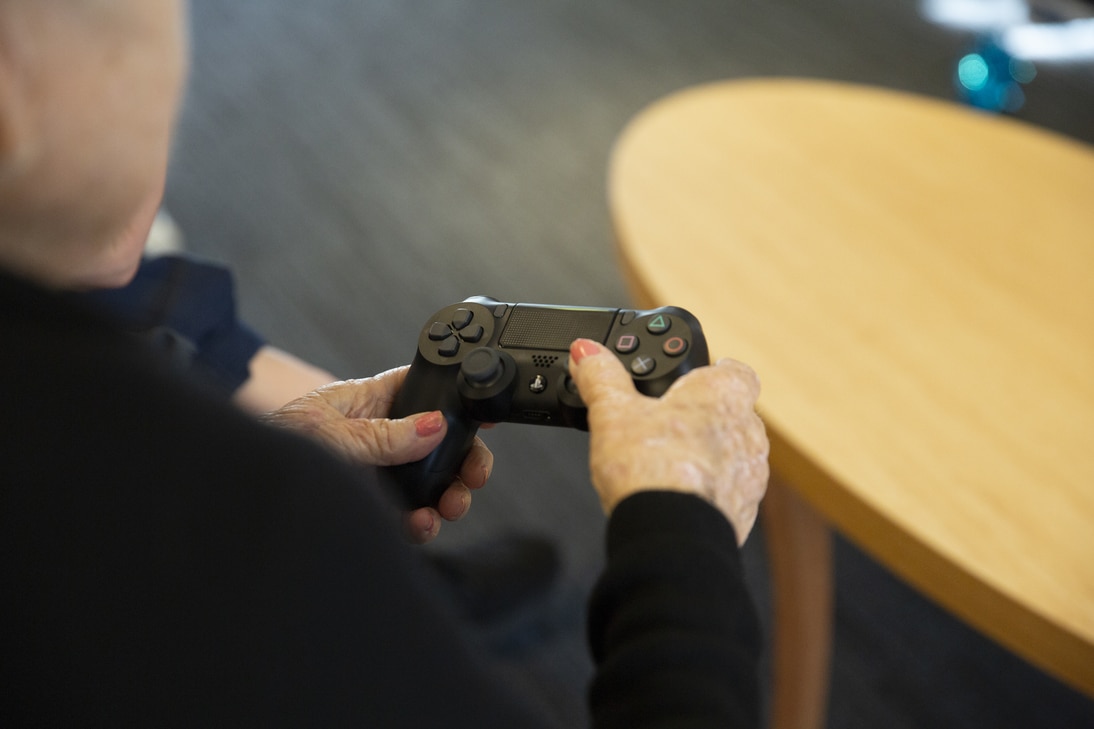
Gaming helps with social connection
Gaming and getting online a great way for grandparents to connect with loved ones
Right now, we’re all looking for ways to connect with loved ones and for grandparents, a solution could just be a couple of clicks away.
University of New England (UNE) psychology and behavioural science researcher Alex McCord is offering gaming to elderly residents in three Feros Care (founder of Be Someone For Someone) residential villages, in which she works.
Finding creative ways to connect can help to tackle loneliness
Being in lock-down or self-isolation requires finding creative ways to connect and Alex said the opportunity to start gaming with grandchildren could help to tackle loneliness and promote engagement, while potentially boosting cognitive function.
“Under-16s are not permitted to visit the elderly in nursing homes due to infection control, but they could connect with their grandparents by playing games together online,” said Alex, a post-graduate student and psychology intern.
“Many residents are finding social distancing difficult, and we’re trying to mobilise as many virtual and online resources as possible – whether it’s video-chatting with families, virtual exercise groups and museum tours, watching opera or gaming – to
help them through.”
Restrictions on socialising in the current climate have seen a growing appreciation for the power of technology to connect family and friends, with older residents in villages such as Feros Care’s embracing the opportunity to adopt email, Skype,
and other virtual options.
Connecting virtually offers a range of opportunities
No physical contact doesn’t have to mean no contact at all, and during a time where it’s never more important to Be Someone For Someone, Alex encouraged everyone to get involved, with gaming offering the opportunity to interact while providing
a great conversation topic.
“Playing video games with someone on a shared server gives the elderly person a reference point; it’s something they can then speak to other family members about,” Alex said.
“If you can’t physically connect with someone, there’s no reason why you can’t enjoy a video chat or online activity together like a game or puzzle.”
Published in the July Issue 2020 of Computers in Human Behaviour, Alex’s research found cognitive function
of residents aged 80 and above significantly improved through regularly playing video games.
With her support for gaming founded through her research, Alex said video games provided a boost to boost working memory, the ability to switch tasks and visual attention.
“Research supports the use of cognitive stimulation to maintain neuroplasticity (the brain’s ability to change throughout life) in ageing adults and to manage the onset of dementia,” Alex said.
“It’s widely held that neural engagement, physical exercise, new learning and cognitive training, when adopted as part of a healthy ageing lifestyle, can help compensate for brain degeneration.
“If cognitive exercise can help compensate for the decline in these processes, and provide a little fun and connection with family, then seniors have another tool to help maintain their quality of life and independence during these challenging times.”